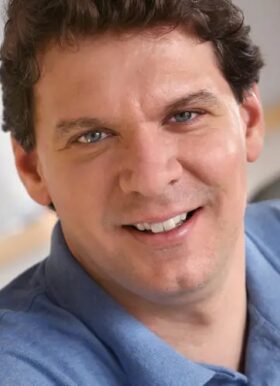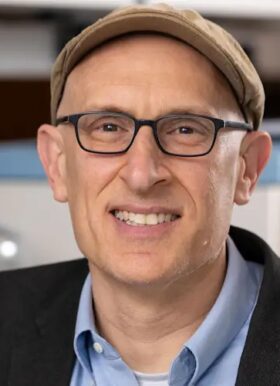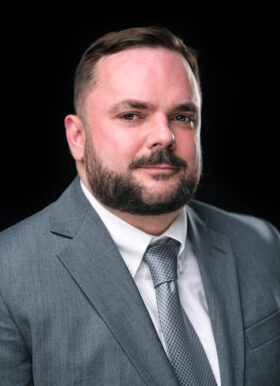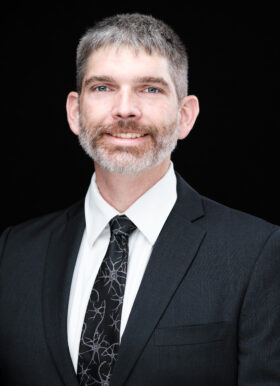Innovation is at the core of what we do. Continually striving for better ways to treat patients, our surgeons adopt the best technologies and approaches from around the world — and contribute many innovations of their own. A hallmark of this is our Division of Neurotechnology.
What is Neurotechnology?
Neurotechnology is any hardware, software, or technical process that engages with or monitors the nervous system to treat or diagnose human disease. The Division of Neurotechnology was developed to create, identify, and clinically deploy the most advanced neuro-technologies to care for present-day and future patients.

WashU Neurotechnology’s track record of success
Using technology to engage with the nervous system will revolutionize how diseases of the brain and body are understood and treated. These new capabilities will change medicine and create new economic opportunities.

Stroke
Created the first Food and Drug Administration (FDA) approved Brain Computer Interface for chronic stroke.

Brain Tumors & Epilepsy
Performed the first FDA approved treatment of brain tumors and epilepsy with minimally invasive laser probe.

Diagnostics
Created a wholly novel, non-invasive method of using ultrasound to release brain biomarkers into the blood that has been designated by the Food and Drug Administration (FDA) as a “Breakthrough Device.”
Emerging technologies

Brain Neuro – modulation
Developing the most advanced, coin-sized implant in the skull to treat mental health disorders such as depression and Post Traumatic Stress Disorder (PTSD).

Chronic Pain
Creating novel Brain Computer Interfaces for patients with chronic pain.

Using AI to Map the Brain
Using novel methods to analyze resting-state functional MRI images to better understand brain activity and connectivity.
Our Experts
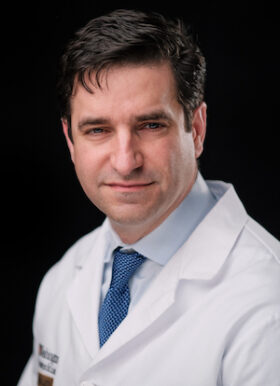
Eric C. Leuthardt, MD, MBA
Shi H. Huang Professor of Neurological Surgery
Vice-Chair of Innovation, Department of Neurosurgery
Chief, Division of Neurotechnology
Professor of Neurosurgery, Neuroscience, Biomedical Engineering and Mechanical Engineering & Materials Science
Director, Center for Innovation in Neuroscience and Technology
Director, Brain Laser Center
Castle Connolly Top Doctor

Jon T. Willie, MD, PhD
Associate Professor of Neurosurgery, Biomedical Engineering, Psychiatry, Neuroscience and Neurology
Director of Stereotactic, Functional, and Epilepsy Neurosurgery
Castle Connolly Top Doctor
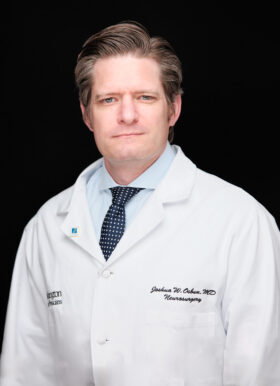
Joshua W. Osbun, MD, MSCI
Professor of Neurosurgery, Radiology and Neurology
Vice-Chair of Education, Department of Neurosurgery
Program Director, Neurosurgery Residency
Director, Cerebrovascular Surgery and Interventional Neuroradiology
Castle Connolly Top Doctor
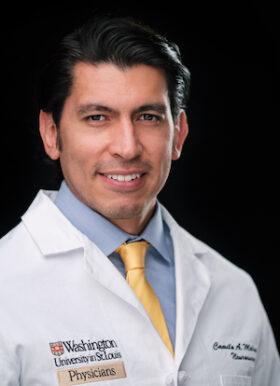
Camilo Molina, MD FAANS
Associate Professor of Neurosurgery and Orthopedic Surgery
Director, Spinal Deformity and Spinal Oncology
Co-Director, Patient Safety and Quality Improvement
Co-Director, Complex Spine Fellowship
Deputy Director of Spine Innovation, Center for Innovation in Neuroscience and Technology
Castle Connolly Top Doctor

Jarod L. Roland, MD
Assistant Professor of Neurosurgery
Director of the Pediatric Epilepsy Surgery Program
Director of the Selective Dorsal Rhizotomy Program
- Email: rolandj@nospam.wustl.edu
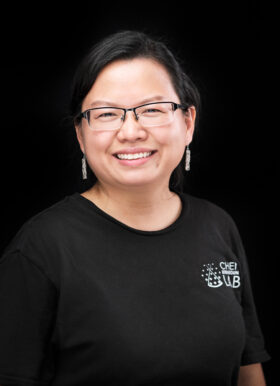
Hong Chen, PhD
Associate Professor, Biomedical Engineering and Neurosurgery
- Phone: 314-935-3954
- Email: hongchen@nospam.wustl.edu
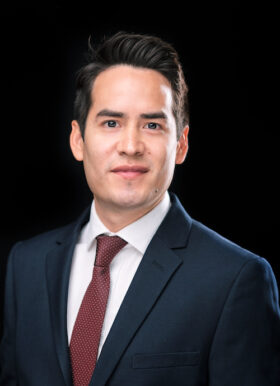
Ismael Seáñez, PhD
Assistant Professor, Biomedical Engineering and Neurosurgery
- Phone: 314-935-7665
- Email: ismaelseanez@nospam.wustl.edu
